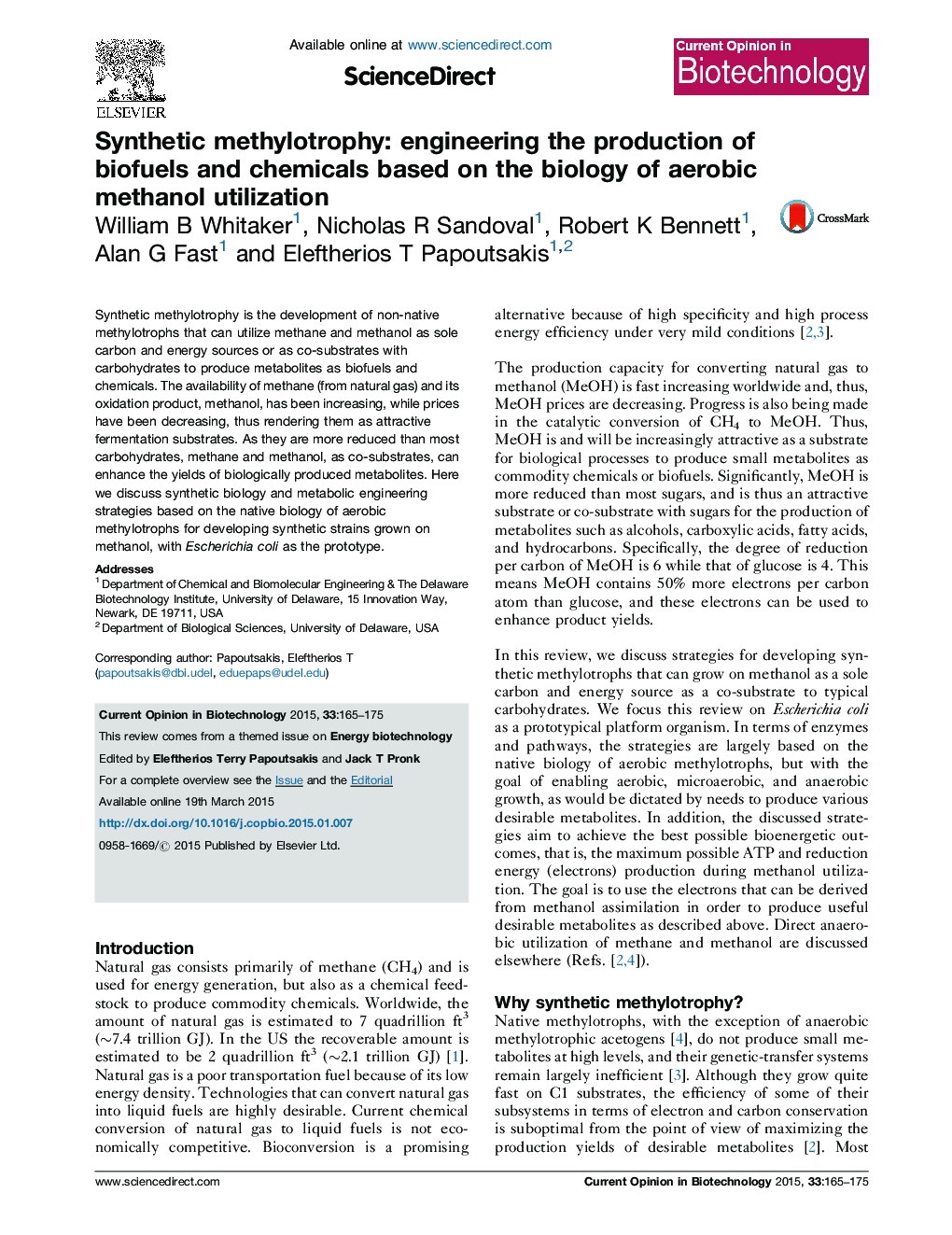| Article ID | Journal | Published Year | Pages | File Type |
|---|---|---|---|---|
| 15609 | Current Opinion in Biotechnology | 2015 | 11 Pages |
•Microbial production of biofuels and commodity chemicals from natural gas and methanol.•Engineering platform organisms to utilize methanol for producing small metabolites.•The challenge of engineering E. coli to ‘see’ methanol as ‘food’ for sustaining its metabolism.•Challenges in methanol oxidation to preserve the electrons for metabolite production.
Synthetic methylotrophy is the development of non-native methylotrophs that can utilize methane and methanol as sole carbon and energy sources or as co-substrates with carbohydrates to produce metabolites as biofuels and chemicals. The availability of methane (from natural gas) and its oxidation product, methanol, has been increasing, while prices have been decreasing, thus rendering them as attractive fermentation substrates. As they are more reduced than most carbohydrates, methane and methanol, as co-substrates, can enhance the yields of biologically produced metabolites. Here we discuss synthetic biology and metabolic engineering strategies based on the native biology of aerobic methylotrophs for developing synthetic strains grown on methanol, with Escherichia coli as the prototype.
Graphical abstractFigure optionsDownload full-size imageDownload high-quality image (129 K)Download as PowerPoint slide
